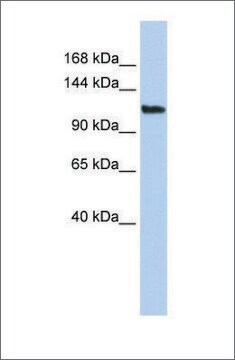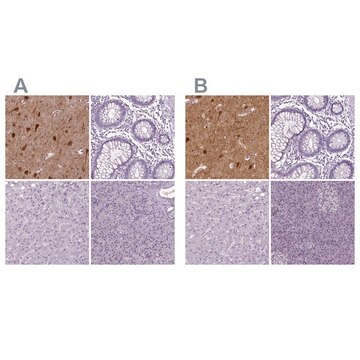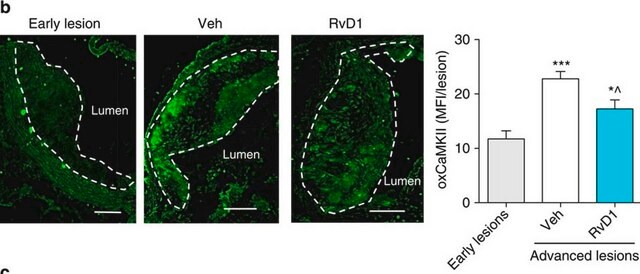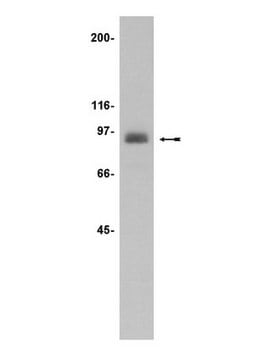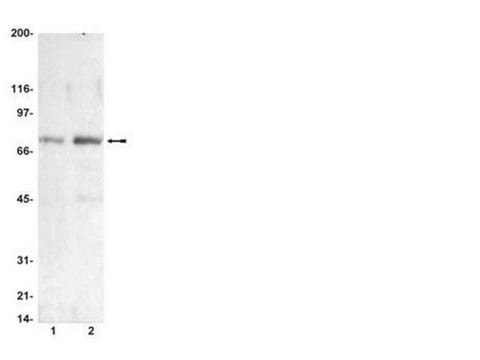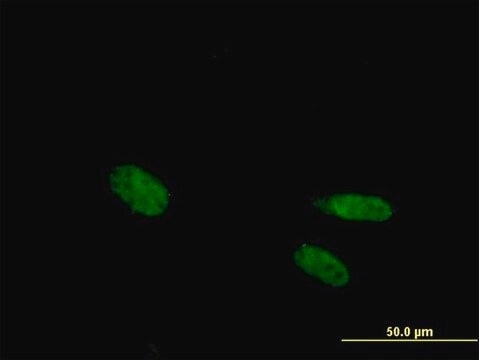04-1469
Anti-hnRNP A1 Antibody, clone 9H10
clone 9H10, from mouse
Synonym(s):
Helix-destabilizing protein, Single-strand RNA-binding protein, heterogeneous nuclear ribonucleoprotein A1, heterogeneous nuclear ribonucleoprotein A1B protein, heterogeneous nuclear ribonucleoprotein B2 protein, heterogeneous nuclear ribonucleoprotein c
About This Item
Recommended Products
biological source
mouse
Quality Level
antibody form
purified immunoglobulin
antibody product type
primary antibodies
clone
9H10, monoclonal
species reactivity
human
packaging
antibody small pack of 25 μg
technique(s)
western blot: suitable
isotype
IgG2bκ
NCBI accession no.
UniProt accession no.
shipped in
ambient
target post-translational modification
unmodified
Gene Information
human ... HNRNPA1(3178)
Related Categories
General description
Specificity
Immunogen
Application
Epigenetics & Nuclear Function
RNA Metabolism & Binding Proteins
Quality
Western Blot Analysis: 0.01 µg/ml of this antibody detected hnRNP A1 on 10 µg of HeLa nuclear extract.
Target description
Physical form
Storage and Stability
Analysis Note
HeLa nuclear extract
Other Notes
Disclaimer
Not finding the right product?
Try our Product Selector Tool.
Certificates of Analysis (COA)
Search for Certificates of Analysis (COA) by entering the products Lot/Batch Number. Lot and Batch Numbers can be found on a product’s label following the words ‘Lot’ or ‘Batch’.
Already Own This Product?
Find documentation for the products that you have recently purchased in the Document Library.
Our team of scientists has experience in all areas of research including Life Science, Material Science, Chemical Synthesis, Chromatography, Analytical and many others.
Contact Technical Service
